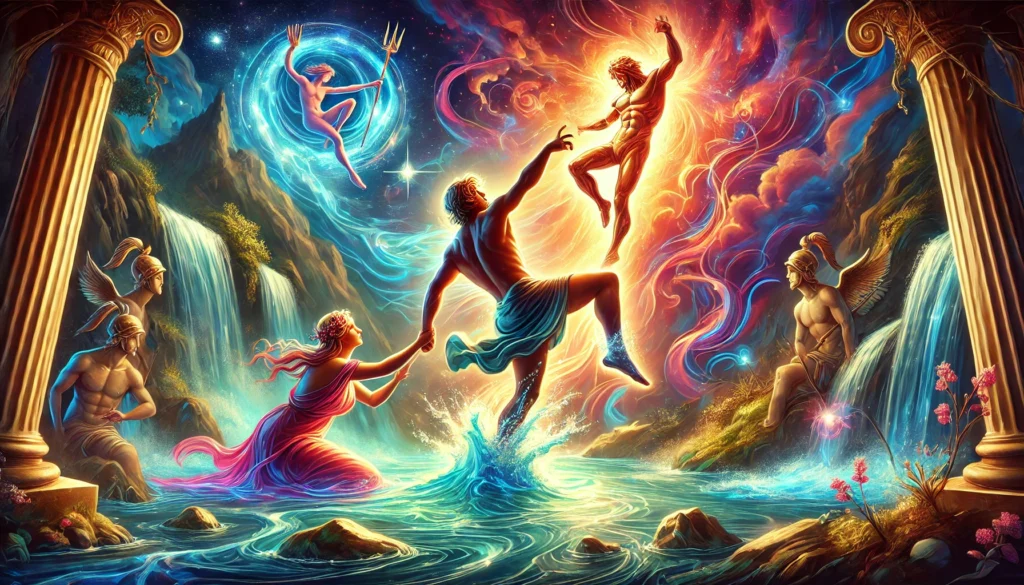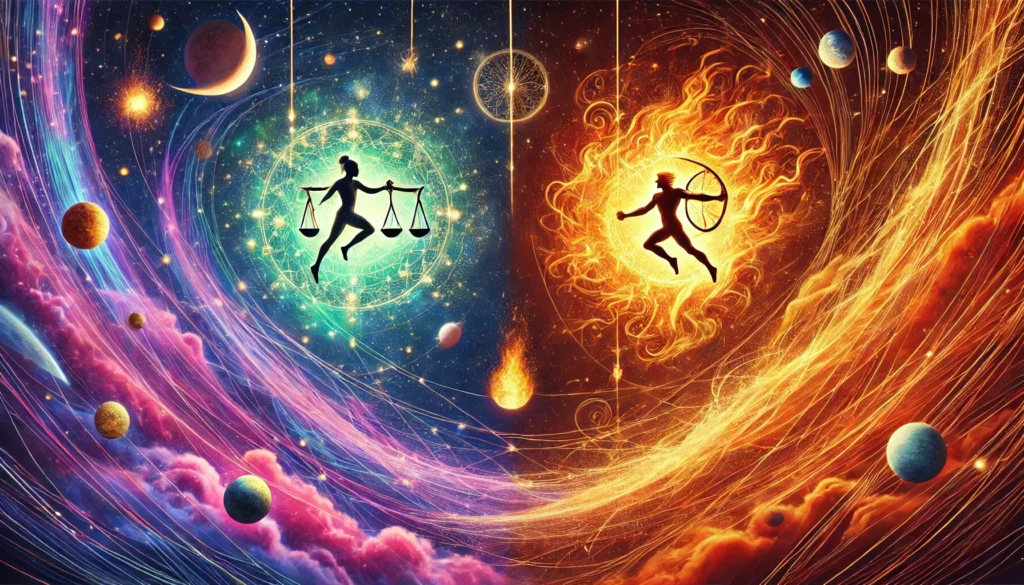Introduction: A Timeless Comparison
What connects an Indian prince wielding a divine bow to a Greek warrior blessed by the gods? While separated by centuries and cultures, Arjuna from the Mahabharata and Achilles from the Iliad represent two of the most iconic figures in ancient mythology. These heroes embody timeless themes of strength, morality, and fate, making their stories resonate across generations.
But how does Arjuna compare to Achilles, and what can their journeys teach us about heroism, duty, and destiny? In this deep dive, we’ll explore their strengths and weaknesses, ethical dilemmas, and the profound role of fate in their narratives.

Strength and Valor: Arjuna vs. Achilles
Arjuna – The Archer of Discipline
Arjuna, the third Pandava, stands as the epitome of discipline and skill. Known for his unwavering focus and mastery of the bow, his strength lies in his dedication to dharma (duty) and his ability to align his actions with cosmic law.
- Signature Weapon: The Gandiva, a celestial bow gifted by the gods.
- Key Achievements: Winning Draupadi’s hand, defeating Karna, and leading the Pandavas to victory in the Kurukshetra War.
- Philosophical Core: Arjuna’s strength transcends physical prowess, rooted deeply in his understanding of ethics and spiritual teachings imparted by Krishna.
“Yada yada hi dharmasya glanir bhavati Bharata…” (Bhagavad Gita 4.7) – A reminder from Krishna that Arjuna’s strength comes from his alignment with divine will.
Achilles – The Warrior of Passion
Achilles, the son of Peleus and the sea goddess Thetis, is a warrior driven by emotion and honor. His power lies in his invulnerability (save for his heel) and his sheer dominance on the battlefield.
- Signature Weapon: His spear, forged by Hephaestus, the god of blacksmiths.
- Key Achievements: Slaying Hector, avenging Patroclus, and shaping the course of the Trojan War.
- Philosophical Core: Achilles is a character of contrasts—a hero whose physical might is unmatched but whose emotional vulnerability often defines his choices.
“Sing, O goddess, the anger of Achilles…” (Iliad, Book 1) – Homer begins by highlighting Achilles’ defining characteristic: his wrath.

Moral Dilemmas: Duty vs. Passion
Arjuna’s Ethical Struggles
In the Mahabharata, Arjuna faces a profound moral crisis on the battlefield of Kurukshetra. Torn between his duty as a warrior (Kshatriya dharma) and his compassion for his family, he hesitates.
- Key Dilemma: How can he fight against his own kin without compromising his morality?
- Resolution: The Bhagavad Gita, a discourse between Arjuna and Krishna, becomes the ultimate guide. Krishna advises him to act selflessly, without attachment to results—a concept known as Nishkama Karma.
“Karmanye vadhikaraste ma phaleshu kadachana” (Bhagavad Gita 2.47) – Focus on your duty, not the fruits of your actions.
Achilles’ Ethical Struggles
Achilles, in contrast, grapples with personal pride and a thirst for glory. His dilemma arises from his internal conflict between honor and loyalty.
- Key Dilemma: Should he fight for the Greeks who insulted him (Agamemnon’s slight) or stay true to his emotions?
- Resolution: Achilles chooses passion over reason, re-entering the battle only after the death of his beloved Patroclus. His wrath becomes both his driving force and his undoing.
Achilles’ choice to prioritize personal vengeance over collective duty starkly contrasts with Arjuna’s focus on broader dharma.
The Role of Fate in Mythology
Fate in the Mahabharata: Predetermined Yet Flexible
The Mahabharata portrays fate as a guiding but malleable force. While Arjuna’s destiny is preordained, Krishna emphasizes that his actions and choices still hold significance.
- Example: Arjuna’s reluctance to fight is destined to be resolved by Krishna’s counsel.
- Philosophical Insight: Fate serves as a framework, but human agency—through wisdom and righteousness—can shape outcomes.
Fate in the Iliad: Inevitable and Immutable
In contrast, the Iliad presents fate as unchangeable, even by the gods. Achilles’ destiny is sealed—he will achieve eternal glory but die young.
- Example: Despite his mother Thetis’ attempts to protect him, Achilles’ fate (to die after Hector’s death) remains unaltered.
- Philosophical Insight: The Greek worldview reflects a more deterministic approach, where even the strongest heroes cannot escape their fate.

Comparative Table: Arjuna vs. Achilles
| Aspect | Arjuna | Achilles |
| Strength | Master archer, disciplined | Invincible warrior, passionate |
| Moral Dilemma | Duty vs. compassion | Pride vs. loyalty |
| Fate | Guiding but flexible | Fixed and inevitable |
| Philosophical Core | Dharma and selflessness | Honor and personal glory |
| Outcome | Victory with moral clarity | Victory, followed by tragic death |
Cultural and Philosophical Insights
Indian vs. Greek Worldviews
- Indian Perspective: Rooted in spirituality, the Mahabharata emphasizes duty, karma, and the interplay of free will and divine intervention.
- Greek Perspective: The Iliad focuses on human emotions, honor, and the inevitability of fate, reflecting a more fatalistic worldview.
Ethical Lessons from the Epics
- Arjuna’s Takeaway: Align personal actions with universal good.
- Achilles’ Takeaway: Passion drives greatness but can also lead to downfall.
Conclusion: A Legacy of Strength and Morality
Both Arjuna and Achilles personify the timeless archetype of the hero but represent vastly different ideals. Arjuna’s disciplined righteousness offers a path of introspection and alignment with cosmic law, while Achilles’ passion-driven pursuit of glory mirrors the raw intensity of human emotions. Together, they symbolize the dualities within us—reason and emotion, duty and desire, triumph and loss.
Their stories are not just epic but eternal, continuing to inspire us with lessons about strength, morality, and fate.
